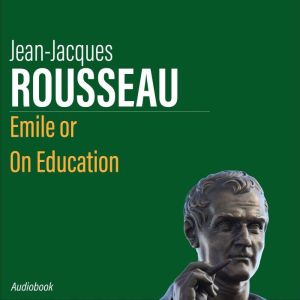

Emile or On Education
Author: Jean-Jacques Rousseau
Narrator: Liam Johnson
Unabridged: 21 hr 34 min
Format: Digital Audiobook Download
Publisher: Stream Readers
Published: 03/06/2023
Categories: Nonfiction, Education, Philosophy


Author: Jean-Jacques Rousseau
Narrator: Liam Johnson
Unabridged: 21 hr 34 min
Format: Digital Audiobook Download
Publisher: Stream Readers
Published: 03/06/2023
Categories: Nonfiction, Education, Philosophy
Jean-Jacques Rousseau (1712–1778) was one of the most influential thinkers during the Enlightenment in eighteenth-century Europe. His works were, and are, widely read, and he has been firmly established as a significant intellectual figure. His works and ideas influenced several noted philosophers and leaders of the French Revolution.
I read this book as research for a writing project of my own. Once finished, I had no idea how I ought to rate it. There is some brilliant writing here, and I highlighted a lot of eminently quotable passages. Certainly I can understand why the French adore some of Rousseau's ideas about education. B......more
If all the philosophers in the world should prove that I am wrong, and you feel that I am right, that is all I ask. My reaction to Rousseau is very similar to my reaction to Thoreau, whose back-to-nature ethic owed much to Rousseau’s philosophy. Though constantly impressed with the breadth of the......more
this book is difficult to understand and hence easy to dismiss. many of the other reviews bear witness to this in the most immediate way. emile is not an instructional manual on how to educate a child, nor is it a misogynistic tract that insists on the inferiority of women. these suggestions fail to......more
Rousseau writes about his view of education from infancy through marriage for his one pupil. It's a lot. It's the soup we live in. I listened to Emile because I wanted to go fast and not be lulled by his arguments - I wanted to know his general arguments and ideas. From time to time, I was surprised......more
The Educated Human 26 January 2016 To say that Rousseau has a low opinion of humanity is an understatement – he absolute despises the corrupting nature of humans and the effect upon the world around them. This is clearly summed up in his opening statement: God makes all things good; man meddles with t......more